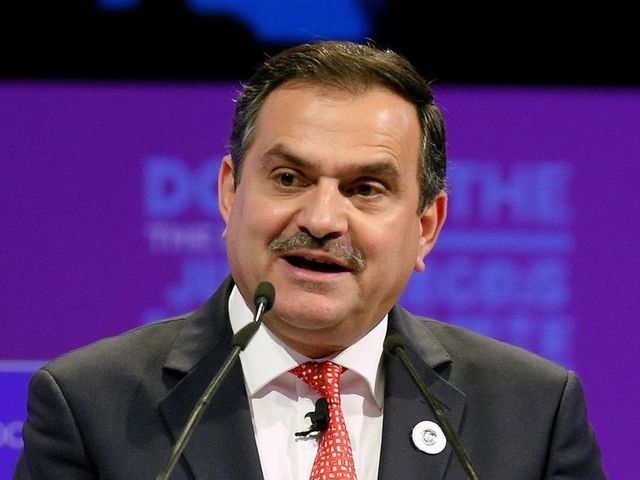When Narendra Modi, Prime Minister of India stepped onto the stage in Visakhapatnam on January 8, 2025, he didn’t just talk about roads or ports – he declared the city will become a major IT hub for the nation. The announcement came amid the unveiling of Google’s USD 10 billion plan to build Asia’s largest data centre cluster in the city. In a public event attended by state leaders, industry executives and journalists, Modi highlighted how digital infrastructure could turbo‑charge India’s growth, especially in the south‑eastern corridor.
Why Visakhapatnam is poised to become an IT powerhouse
Visakhapatnam, historically a maritime gateway, has been repositioning itself as a technology magnet for the past decade. The state’s Andhra Pradesh Government launched the PM‑SETU (Skill Excellence and Training for Upgradation) program in 2023, designating the city as one of 15 hub‑and‑spoke ITI clusters. Each hub receives modern labs, industry‑led curricula and strong placement pipelines.
“The combination of skilled talent, world‑class connectivity and supportive policy makes Visakhapatnam a natural fit for large‑scale cloud infrastructure,” said Chandrababu Naidu, Chief Minister of Andhra Pradesh. His administration has also pledged a "Quantum Valley" – a research ecosystem focussed on quantum computing – and partnered with the Bill & Melinda Gates Foundation on the "Sanjeevani Project" to digitise health records.
Details of Google’s $10 billion data centre cluster
The project, formally titled Google Data Centre ProjectVisakhapatnam, will span three campuses: Adavivaram and Tarluvada villages in Visakhapatnam district, and Rambilli village in the neighbouring Anakapalli district. Completion is slated for July 2028, with construction kicking off later this year.
According to the state’s State Investment Promotion Board, chaired by Naidu, the cluster will host up to 150,000 server racks, three undersea‑cable landing stations and a dedicated metro‑fibre backbone linking the campuses to the upcoming Bhogapuram International Airport, expected to be operational by August 2026.
Independent analysis by Access Partnership estimates the cluster will inject roughly ₹10,518 crore into the state’s Gross State Domestic Product each year during its first five years of operation (2028‑2032). Direct and indirect employment could reach 188,220 jobs annually, ranging from construction crews to cloud‑engineer roles.

Reactions from officials and industry leaders
“This investment is a game‑changer for Andhra Pradesh’s digital economy,” remarked Nara Lokesh, IT and Electronics Minister of the state, during a press briefing. He added that negotiations with Google’s senior executives are scheduled for a meeting in New Delhi on October 14, 2025.
Union Finance Minister Nirmala Sitharaman emphasized that such projects reinforce India’s standing as a global hub for Global Capability Centres (GCCs). She noted that nearly half of all GCCs worldwide now operate out of India.
“The synergy between the data centre and our upcoming Quantum Valley will attract research talent and high‑value startups,” said Jyotiraditya Scindia, Union Minister for Entrepreneurship and Skill Development, who will also inaugurate the India Mobile Congress 2025 on October 8.
Projected economic and employment impact
Beyond the direct cashflow, Google Cloud’s productivity‑led services are projected to add another ₹9,553 crore per year through digital enablement across manufacturing, agritech and public services. Over a five‑year horizon, that translates to roughly ₹47,720 crore of incremental value.
Nationally, the Ministry of Electronics and Information Technology estimates that all digital‑infrastructure hubs could generate up to USD 2.1 trillion in added value and support 10 million jobs by 2047.
Local businesses are already gearing up. Small‑scale IT firms in Visakhapatnam report a 35% surge in enquiries for cloud‑migration services since the project’s announcement, while real‑estate developers are fast‑tracking office‑space projects to meet anticipated demand.

Future projects and infrastructure upgrades
Visakhapatnam’s strategic location on the east coast makes it a natural landing point for submarine cables connecting India to Southeast Asia and the Pacific. The three new cables, each rated at 200 Tbps, are slated for deployment by 2027, dramatically lowering latency for cloud services.
The upcoming Bhogapuram International Airport will provide direct air links to major Asian tech hubs, easing talent mobility. Meanwhile, the state’s "Data Lake" initiative will interlink over 30 government departments, offering citizen services via a WhatsApp‑based interface.
Looking ahead, experts anticipate that the convergence of the data centre, Quantum Valley, and skill‑training hubs could position Andhra Pradesh as a "Silicon Valley of the East" within the next decade.
Frequently Asked Questions
How will the Google data centre affect employment in Visakhapatnam?
The project is expected to create roughly 188,220 direct and indirect jobs each year between 2028 and 2032. These range from construction labor and electrical engineers to cloud architects and support staff, boosting both skilled and unskilled employment in the region.
What is the timeline for the data centre’s construction and operation?
Ground‑breaking is slated for late 2025, with major civil works finishing by early 2027. The three campuses will become fully operational by July 2028, after which Google Cloud services will roll out in phases.
What other initiatives are complementing the data centre in Andhra Pradesh?
The state is simultaneously rolling out a "Quantum Valley" research park, the Sanjeevani digital‑health project with the Bill & Melinda Gates Foundation, a "Data Lake" for inter‑departmental data sharing, and the PM‑SETU skill‑training hubs to create a talent pipeline for the new tech ecosystem.
How will improved connectivity impact the region’s growth?
The addition of three 200 Tbps submarine cables and dedicated metro‑fibre lines will slash data latency, making Visakhapatnam attractive for AI, IoT and high‑frequency trading firms. Coupled with the upcoming Bhogapuram International Airport, the region will enjoy seamless global logistics and talent flow.
What does this mean for India’s position in the global tech market?
If the Visakhapatnam hub reaches its projected capacity, India could capture a larger share of the global cloud‑services market, reinforce its status as a GCC powerhouse, and generate up to USD 2.1 trillion in added economic value by 2047, according to ministry estimates.



